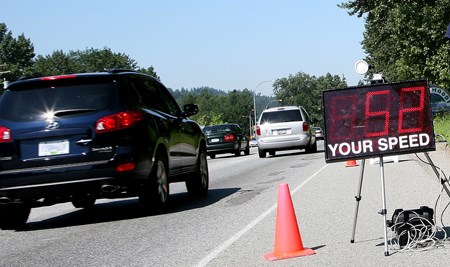It will be tempting to call for the privatization of ICBC because of recent transgressions, which have made the auto insurer a cash cow in good times and a political football in bad.
Yes, we need government to stop messing around with ICBC but, as the recent Ernst & Young report pointed out, there are a number of things the new NDP government can do to reduce accidents and the cost of insurance claims without eliminating the Crown insurer entirely.
While some increase in rates may be necessary to stave off insolvency, the government should also crack down on dangerous driving to keep claim costs down.
This may require an entirely new view of how we drive and will alarm many who believe driving fast and dangerously is their right.
The review of ICBC requested by the previous BC Liberal government suggested that the government tackle road safety as a number one priority.
It recommended the return of photo radar, based on research that says it could cut fatal and serious collisions by a third. More red light cameras could be installed and more resources put into policing impaired and distracted driving.
Not mentioned in the report is reinstitution of auto safety tests, similar to AirCare, where a car’s basic mechanics is examined to ensure they are safe for highway driving and, even more stringent, but possibly necessary, the enhancement and frequency of drivers’ tests and tougher penalties for those who break the law.
While it would be nice if people just stopped driving dangerously of their own accord, that’s not likely to happen without some tougher rules.
On the other hand, those with long safety records should perhaps receive even more incentives for good driving.
On the claim side, the report showed that increasing weekly wage and medical benefits while reducing lump some payouts for minor pain and suffering could reduce premiums and save between $770 million and $1.4 billion depending on the chosen model.
That too, would be a radical change, but maybe necessary to keep insurance affordable.
Can ICBC be saved? Yes, but to do so will require an entirely new perspective on driving and auto insurance.
Can the new NDP withstand the political heat required to make such a change?
Stay tuned.



